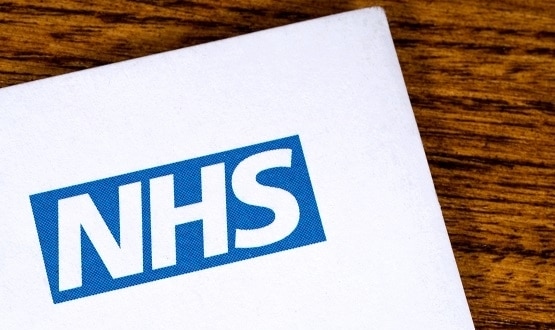NHS England to be ‘between 30 and 40 per cent smaller than current size’
- 7 July 2022

The chief executive of NHS England has revealed that the organisation is expected to be between 30-40% “smaller than the current combined size of NHS England, Health Education England and NHS Digital” by the end of 2023/24.
In a letter to staff, Amanda Pritchard states the official formation of Integrated Care Systems (ICSs) on July 1, means that “NHS England must now change the way we work” adding “this means we need to reduce the size of NHS England and be rigorous about what we do”.
“This will mean significant change for NHS England,” Pritchard’s letter adds.
“We expect that, by the end of 2023/24, the new single organisation will be at least 30%, and up to 40% smaller than the current combined size of NHS England, Health Education England and NHS Digital.”
.@NHSEngland will be between 30% and 40% smaller than its current combined size says @AmandaPritchard as she reveals a plan to "reset" what it does and delegate work to new regional organisations: pic.twitter.com/cv6BZjhak2
— Shaun Lintern (@ShaunLintern) July 7, 2022
In 2021, the Wade-Gery review recommended that NHS Digital, NHSX and Health Education England should be merged with NHS England and Improvement. Former health secretary, Matt Hancock, ordered the major review into digital transformation in the NHS in July 2021. It was headed by Laura Wade-Gery to determine the critical capabilities and digital operating model needed across the three national bodies to drive the digital system transformation envisaged in the NHS Long Term Plan.
While NHSX has already been disbanded, NHS Digital’s interim CEO and interim CIO at NHS England and Improvement, Simon Bolton has hinted that NHS Digital will go through a similar process next year and officially merge with NHS England.
Interim chief executive of NHS Providers, Saffron Cordery, said: “We see the benefits of bringing national leadership for workforce and digital within NHS England’s remit to ensure integrated policy making. It is also good that NHS England under Amanda Pritchard is seeking to adapt to support system working, harnessing the skills and expertise of staff effectively and efficiently.
“This is a difficult process that will inevitably cause worry and uncertainty for colleagues and we welcome the emphasis on compassionate leadership.
“It will be important to ensure this focus on the impact of internal mergers does not eclipse the wider relationships and support that will be needed to ensure the success of system working, and the crucial role of trusts within that.”





8 Comments
The NHS is dead – enabled by these non health qualified bureaucrats and globalist warmongers who are enjoying their total lack of accountability whilst thousands die.
Their eugenesist approach to health care is a revelation – hang the lot of them
There are clearly some very experienced and talented staff working in the centre. I suspect this talent is needed to address the digital workforce demands, certainly in Acute Trusts. However, I’m not sure at the moment ICS’s Trusts etc. are clear on the roles they will need, and at what level. I hope it doesn’t lead to a loss of talent out of the NHS, further contributing to the difficulty in recruitment and increased reliance on agency/contractors for roles where there is a preference to recruit substantively.
Silent Night: why do you assume these none clinical roles would have any impact on waiting times or excess deaths? Many would argue that there is a huge amount of bloat, cross over and inefficiency in these organisations so merging then slimming down is sensible.
I assume the NHS will be 30 – 40 per cent smaller because the population would have been reduced by that amount as millions of people are waiting for critical care operations and will die prematurely,according to the ONS excess deaths in England are over 1,500 weekly as of June 2022, this could easily rise to 10,000 and then exponentially increase further.
It could be worth repeating the exercise in every Trust in the country!
30% reduction in staff in every Trust??
This isn’t a surprise NHSE/D/X/HEE etc is now one very large national governmental organisation.
However the timing and only week after ‘A plan for digital health and social care’ which references an additional 10,000 digital jobs.
Everyone should be going to the “NHS long term plan 2022” web page and reading the changes that are planned to be rolled out over the next few years!
Comments are closed.